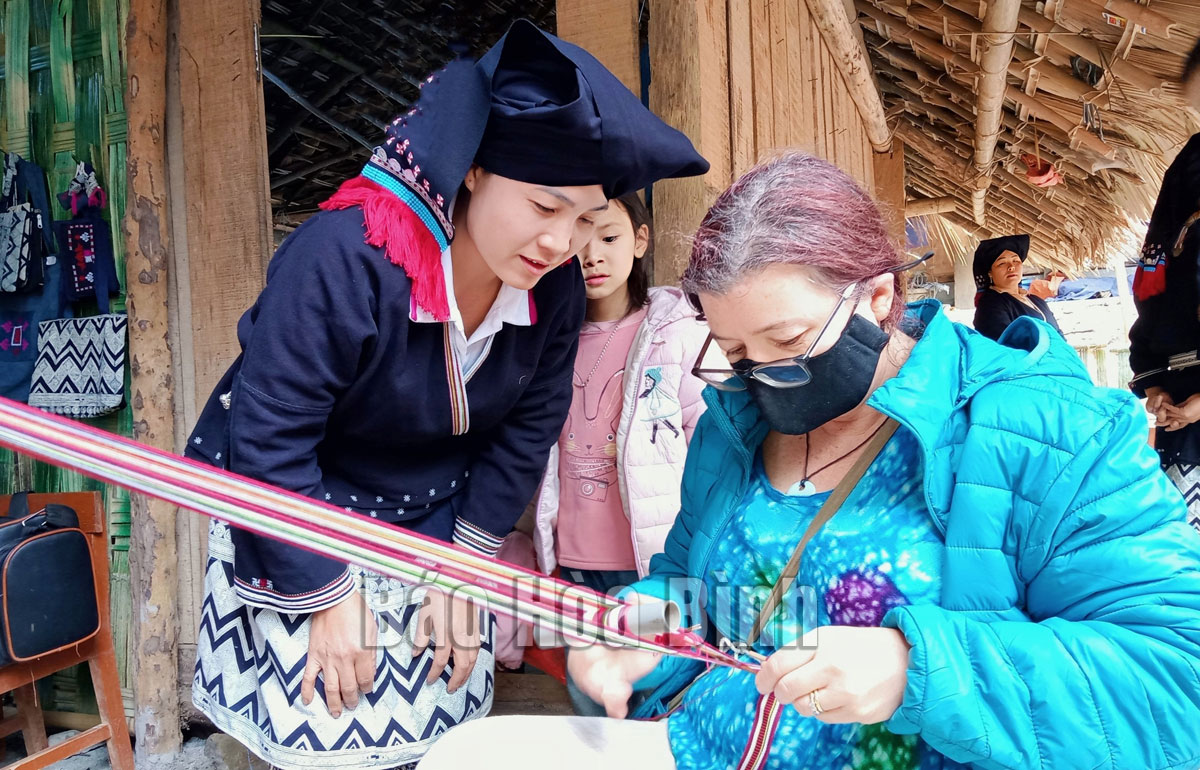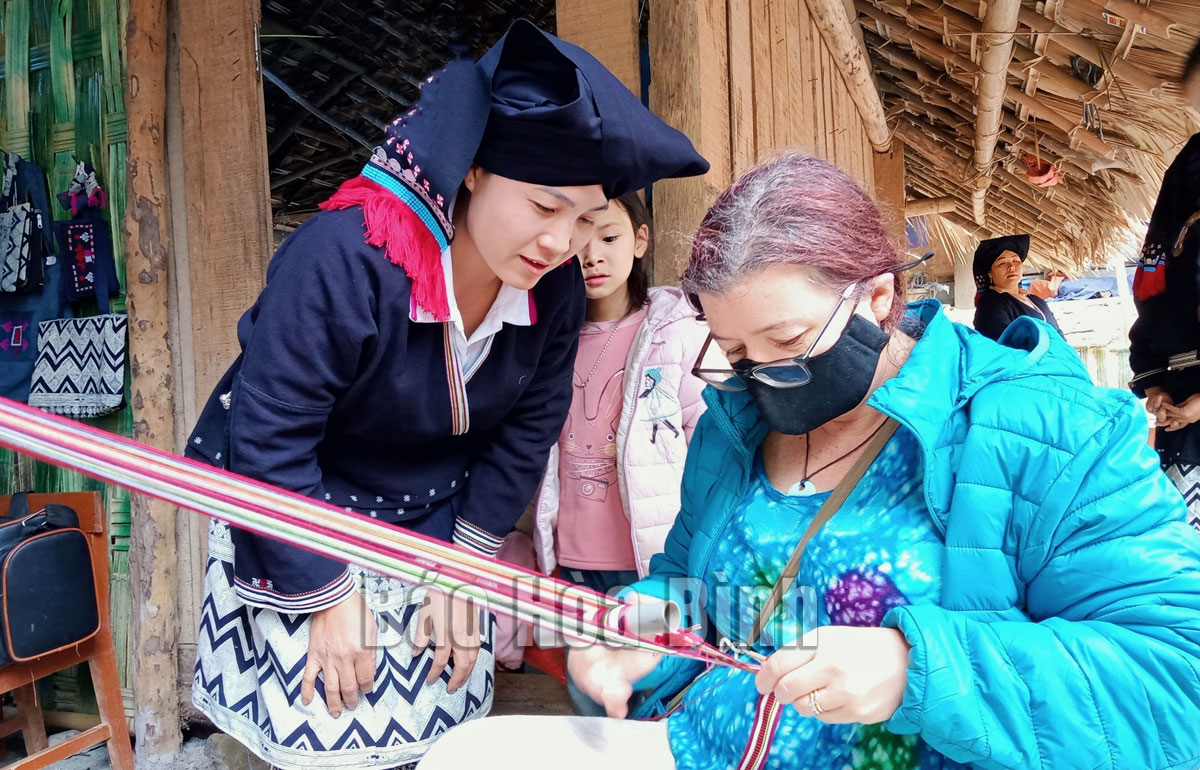
(HBO) - Unique cultural features and pristine nature have helped the mountainous district of Da Bac to attract visitors.
Foreign tourists excited to experience
the brocade weaving of the Dao Tien people in Sung hamlet, Cao Son commune, Da
Bac district.
Over the recent years, the district has paid great attention to developing
community-based tourism which is suitable for the mountainous district with
hamlets and villages of ethnic groups.
For example,Sung hamlet with a history of more than
500 years is home to more than 70 households of the Dao Tien ethnic group. With
untouched nature, Sung hamlet attracts more and more tourists, especially as
local people still keep their traditional houses, maintain brocade weaving and
restore their unique traditional culture.
Villager Ly Thi Nhat said that in the past, people mainly
wore the clothes they made. Nowadays, many young people have switched to
wearing ready-made clothes.
Therefore, there was a time when traditional brocade
weaving was at risk of disappearing. However, thanks to the development of
community tourism, villagers have restored traditional weaving. A brocade production
group in the hamlet currently has 12 members earning a stable income thanks to
the traditional job.
Community-based tourism also helps restore many
traditional occupations and values, for example herbal medicines. Herbal bath is now a tourism product of the hamlet.
Ly Van Minh, owner of a herbal bathing facility, said that
since ancient times, the Dao people have owned many valuable remedies,
including bath remedies. The restoration of these remedies not only helps people
preserve tradition but also creates tourism products to attract tourists.
Moreover, Sung villagers have also restored the profession
of making dó paper. Thanks to the preserved traditional cultural features, the
hamlet has made a good impression on tourists. Along with the development of
local tourism, villagers are motivated to continue to preserve and promote
their traditional culture. That creates the foundation for sustainable tourism
development, bringing long-term economic benefits to locals.
With the advantages of the natural landscape, culture, and
people, Da Bac district has a lot of potential to develop unique and attractive
types of tourism. Currently, the district is focusing on improving
infrastructure, attracting investment to promote tourism development. People
are called on to protect the landscape and environment, and harmoniously
combine cultural conservation with tourism development./.
A diverse chain of eco-tourism and resort destinations concentrated in Hoa Binh city and the districts of Tan Lac, Da Bac, and Luong Son… Along with the launch of several key high-quality resort tourism projects, these developments have reshaped the landscape and enhanced the appeal of Hoa Binh as a travel destination.
Boasting diverse terrain, a mild climate, and rich natural resources, Cao Phong district is increasingly asserting its place on Vietnam’s tourism map, attracting both domestic and foreign visitors. The district is renowned for its stunning landscapes, majestic mountains, a crystal-clear hydropower lake, and the unique cultural identity of local ethnic groups.
With its pristine landscapes, unique cultural heritage of Muong ethnic minority, and an expanding range of visitor experiences, Tan Lac district of Hoa Binh has fast become a captivating destination for both domestic and international tourists.
Until now, Sung village in Cao Son commune, Da Bac district remains the only Dao ethnic community in Hoa Binh province to develop a community-based tourism model. Beyond its untouched natural landscapes, cultural identity serves as the cornerstone attraction for visitors.
Alongside the diverse cultural identities of the Kinh, Muong, Tay, Thai, Dao, and Mong ethnic people, Hoa Binh province is also renowned as the "capital" of the northwestern Vietnamese cuisine, offering unique and distinctive dishes. At festivals, during Lunar New Year (Tet), or on significant family or community occasions, special dishes are prepared, leaving a lasting impression on visitors.
A Phong Linh (Yellow Tabebuia) flower garden in Thang village, Thach Yen commune, Cao Phong district is currently in full bloom, drawing a large number of visitors.



